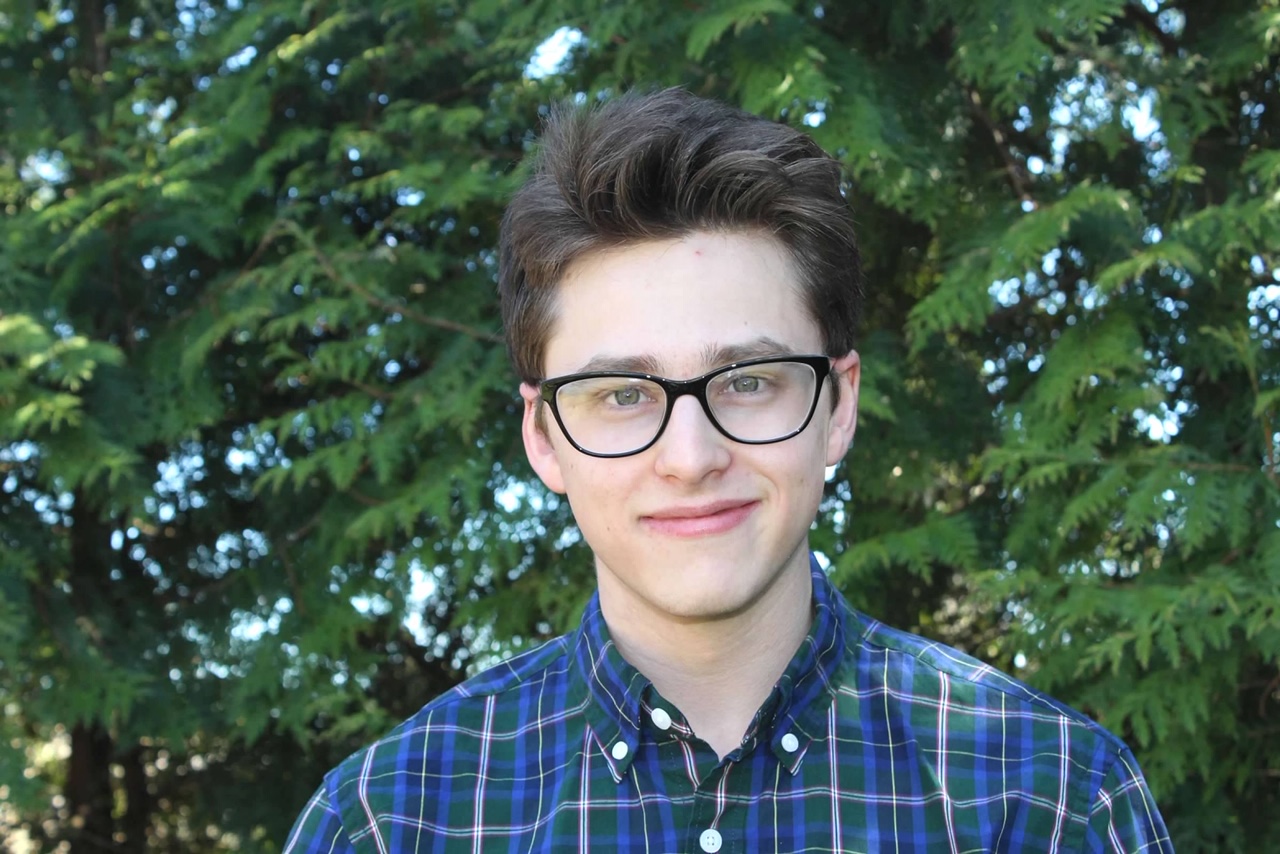 Scott Moroch, courtesy of same
Scott Moroch, courtesy of same
Scott Moroch was one of four CMNS undergraduates to receive a scholarship from the Barry Goldwater Scholarship and Excellence in Education Foundation, which encourages students to pursue advanced study and research careers in the sciences, engineering and mathematics. Over the last decade, UMD’s nominations yielded 33 scholarships—the most in the nation, followed by Stanford University with 32. Harvard University, the Massachusetts Institute of Technology and Johns Hopkins University also rank in the top 10. Moroch is the eighth physics undergraduate recipient in the past four years.
“Our scholars are a uniquely talented group, already making discoveries in their fields of study—from developing more stable batteries and innovative power supplies to streamlining the pathway of drug design and understanding the contributions of RNA in cancer and other diseases,” said Robert Infantino, associate dean of undergraduate education in the College of Computer, Mathematical, and Natural Sciences. Infantino has led UMD’s Goldwater Scholarship nominating process since 2001.
Moroch was among the 396 Barry Goldwater Scholars selected from 1,343 students nominated nationally this year. Goldwater Scholars receive one- or two-year scholarships that cover the cost of tuition, fees, books, and room and board up to $7,500 per year. These scholarships are a stepping-stone to future support for the students’ research careers. The Goldwater Foundation has honored 70 UMD winners and five honorable mentions since the program’s first award was given in 1989.
Moroch, a native of Wayne, New Jersey, designed his own particle accelerator when he was still in high school. Since enrolling at Maryland, he has been working on UMD’s cyclotron with Timothy Koeth, an assistant professor in the Department of Materials Science and Engineering and the Institute for Research in Electronics and Applied Physics.
A cyclotron is a type of particle accelerator that won its inventor the Nobel Prize in physics in 1939. The beams that cyclotrons produce, while potentially dangerous, accomplish wondrous things—killing cancer cells with extreme precision, for instance, or changing atoms into a different element altogether.
Moroch is working with Koeth to develop a novel cyclotron storage ring for Lockheed Martin. The company is interested in using the technology for a new class of power supplies for aerospace electric propulsion systems that can carry things into the solar system and beyond.
With initial funding from Lockheed, Moroch showed that a cyclotron design could be effective, but it was unstable. So the company decided to fund a more ambitious project at UMD—where the instabilities could be factored out. Moroch now leads a significant portion of the research team.
“Scott is no ordinary exceptional student,” said E. H. “Ned” Allen, senior fellow and chief scientist at Lockheed Martin. “He has won so much respect that he has become a colleague and a first-line team member—even though still an undergraduate.”
Last summer and fall, Moroch led a team of three undergraduates in assembling and upgrading a low-energy storage ring as part of the project. A storage ring is a type of particle accelerator in which a continuous or pulsed particle beam may be kept circulating typically for many hours. The students retrieved used components from another university, restored the retrieved components, designed and fabricated missing subsystems, reassembled them into a working ion storage ring, and brought the whole assembly under high vacuum. The new accelerator got up and running early in the spring semester, achieving what’s known as “first beam.”
“In the past 20 years, I have mentored several dozen undergraduate researchers, and Scott Moroch is the first that has demonstrated the entire cycle of research and brought in substantial research funds,” Koeth said.
Moroch also helped design an electron beamline in collaboration with Los Alamos National Laboratory. In graduate school, Moroch plans to pursue a Ph.D. in accelerator physics.